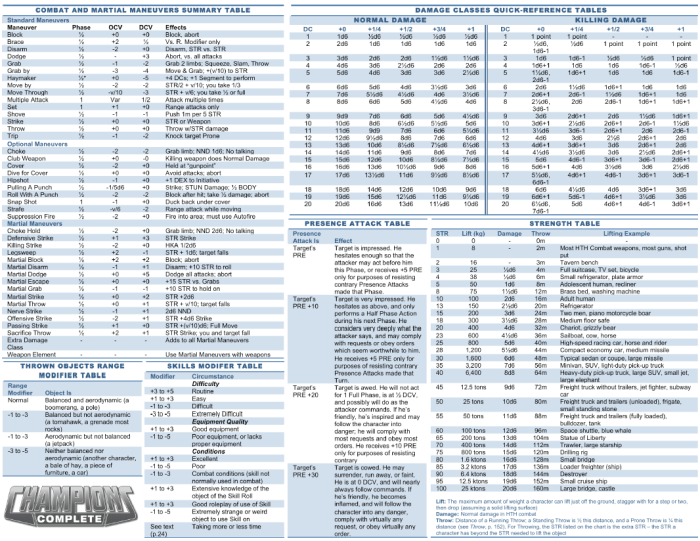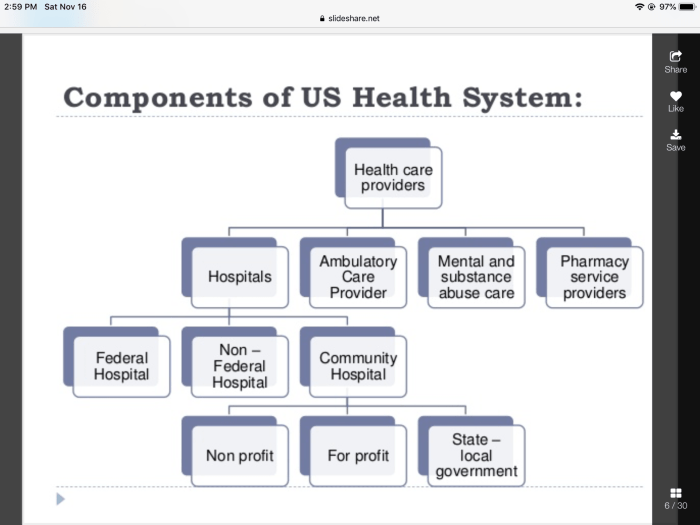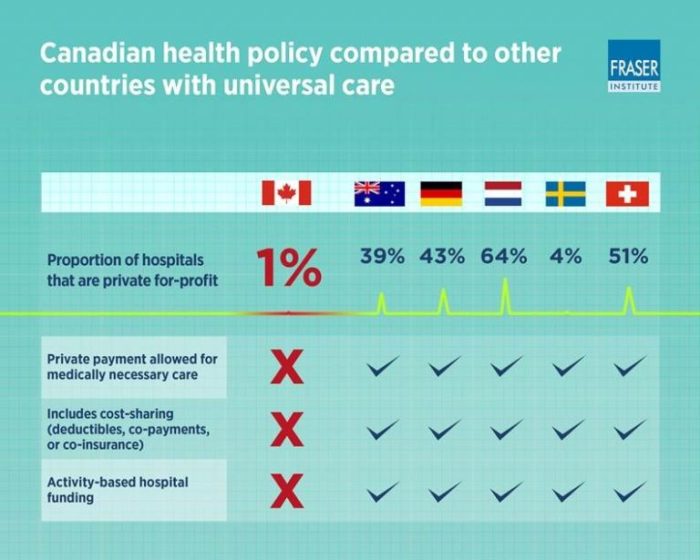Essentials of the us healthcare system 6th edition pdf – Delving into the intricacies of the US healthcare system, this comprehensive guide, “Essentials of the US Healthcare System: A Comprehensive Guide to the 6th Edition,” unravels the complexities of healthcare in the United States. From its historical roots to contemporary challenges and future prospects, this text offers an in-depth exploration of the system’s structure, financing, delivery, quality, ethical considerations, and ongoing evolution.
As healthcare continues to shape the lives of individuals and society as a whole, this guide serves as an invaluable resource for students, practitioners, policymakers, and anyone seeking a deeper understanding of the US healthcare landscape.
Overview of the US Healthcare System
The US healthcare system is a complex and ever-evolving system that provides healthcare services to the population of the United States. It has a long and rich history, dating back to the colonial era, and has undergone significant changes over time.
The major components of the US healthcare system include hospitals, clinics, physicians, and other healthcare providers. These providers offer a wide range of services, from primary care to specialty care to long-term care. The system is also financed by a variety of sources, including private health insurance, public programs, and out-of-pocket payments.
The US healthcare system is often compared to the healthcare systems of other developed countries. One key difference is that the US system is much more expensive than the systems of other countries. Additionally, the US system has a higher rate of uninsured people than other developed countries.
Stakeholders in the US Healthcare System, Essentials of the us healthcare system 6th edition pdf
- Patients
- Providers
- Payers
- Government
- Employers
- Pharmaceutical companies
- Device manufacturers
- Health insurers
- Nonprofit organizations
Financing the US Healthcare System
The US healthcare system is financed by a variety of sources, including private health insurance, public programs, and out-of-pocket payments.
Private Health Insurance
Private health insurance is the primary source of health insurance in the United States. Most people who have private health insurance get it through their employer. However, there are also a number of people who purchase private health insurance on their own.
Public Programs
Public programs are another major source of health insurance in the United States. The largest public program is Medicare, which provides health insurance to people who are 65 or older and to people with certain disabilities. Other public programs include Medicaid, which provides health insurance to low-income people, and the Children’s Health Insurance Program (CHIP), which provides health insurance to children from low-income families.
Out-of-Pocket Payments
Out-of-pocket payments are the third major source of health insurance in the United States. Out-of-pocket payments include deductibles, copayments, and coinsurance. Deductibles are the amount of money that you have to pay out of your own pocket before your health insurance starts to cover your costs.
Copayments are the amount of money that you have to pay for each doctor’s visit or prescription drug. Coinsurance is the percentage of the cost of a medical service that you have to pay out of your own pocket.
Delivery of Healthcare Services

Healthcare services in the United States are delivered by a variety of providers, including hospitals, clinics, physicians, and other healthcare professionals. These providers offer a wide range of services, from primary care to specialty care to long-term care.
Primary Care
Primary care is the first point of contact for most people who need healthcare services. Primary care providers include family physicians, internists, and pediatricians. These providers provide a wide range of services, including preventive care, acute care, and chronic care.
Specialty Care
Specialty care is provided by physicians who have received additional training in a specific area of medicine. Specialty care providers include cardiologists, oncologists, and surgeons. These providers provide care for patients with specific health conditions.
Long-Term Care
Long-term care is provided to people who need assistance with activities of daily living, such as bathing, dressing, and eating. Long-term care can be provided in a variety of settings, including nursing homes, assisted living facilities, and home health agencies.
Quality and Outcomes of Healthcare

The quality of healthcare in the United States is often measured by a variety of factors, including patient satisfaction, clinical outcomes, and cost. Patient satisfaction is a measure of how satisfied patients are with the care they receive. Clinical outcomes are a measure of how well patients’ health improves after receiving care.
Cost is a measure of how much money is spent on healthcare.
There is a great deal of variation in the quality of healthcare in the United States. Some hospitals and providers provide high-quality care, while others provide low-quality care. There are a number of factors that can contribute to the quality of care, including the training and experience of the providers, the availability of resources, and the patient’s own health status.
Ethical Issues in Healthcare: Essentials Of The Us Healthcare System 6th Edition Pdf

Healthcare providers face a number of ethical issues in the course of their work. These issues include confidentiality, informed consent, and end-of-life care.
Confidentiality
Confidentiality is the duty of healthcare providers to keep patient information private. This duty is based on the principle of respect for patient autonomy. Patients have the right to make decisions about their own healthcare, and they need to be able to trust that their healthcare providers will keep their information confidential.
Informed Consent
Informed consent is the process of obtaining a patient’s permission to perform a medical procedure. Before a patient can give informed consent, they must be given information about the procedure, the risks and benefits of the procedure, and the alternatives to the procedure.
Patients must also be given the opportunity to ask questions and to make a decision about whether or not to consent to the procedure.
End-of-Life Care
End-of-life care is the care that is provided to patients who are dying. This care can include pain management, symptom management, and emotional support. End-of-life care providers face a number of ethical issues, including how to respect patient autonomy while also providing appropriate care.
The Future of the US Healthcare System

The future of the US healthcare system is uncertain. There are a number of challenges facing the system, including the rising cost of healthcare, the increasing number of uninsured people, and the aging population.
There are a number of potential solutions to the challenges facing the US healthcare system. These solutions include expanding access to health insurance, reforming the way that healthcare is financed, and improving the quality of care.
The future of the US healthcare system will be determined by the decisions that are made by policymakers, healthcare providers, and patients. It is important for all stakeholders to work together to ensure that the system provides high-quality, affordable care to all Americans.
Expert Answers
What are the key components of the US healthcare system?
The US healthcare system comprises various components, including hospitals, clinics, physicians, nurses, insurance companies, pharmaceutical companies, and government agencies.
How is healthcare financed in the United States?
Healthcare financing in the US involves a mix of private health insurance, public programs such as Medicare and Medicaid, and out-of-pocket payments.
What are the major challenges facing the US healthcare system?
The US healthcare system faces challenges such as rising costs, disparities in access and quality, and the need for ongoing reform to improve efficiency and effectiveness.